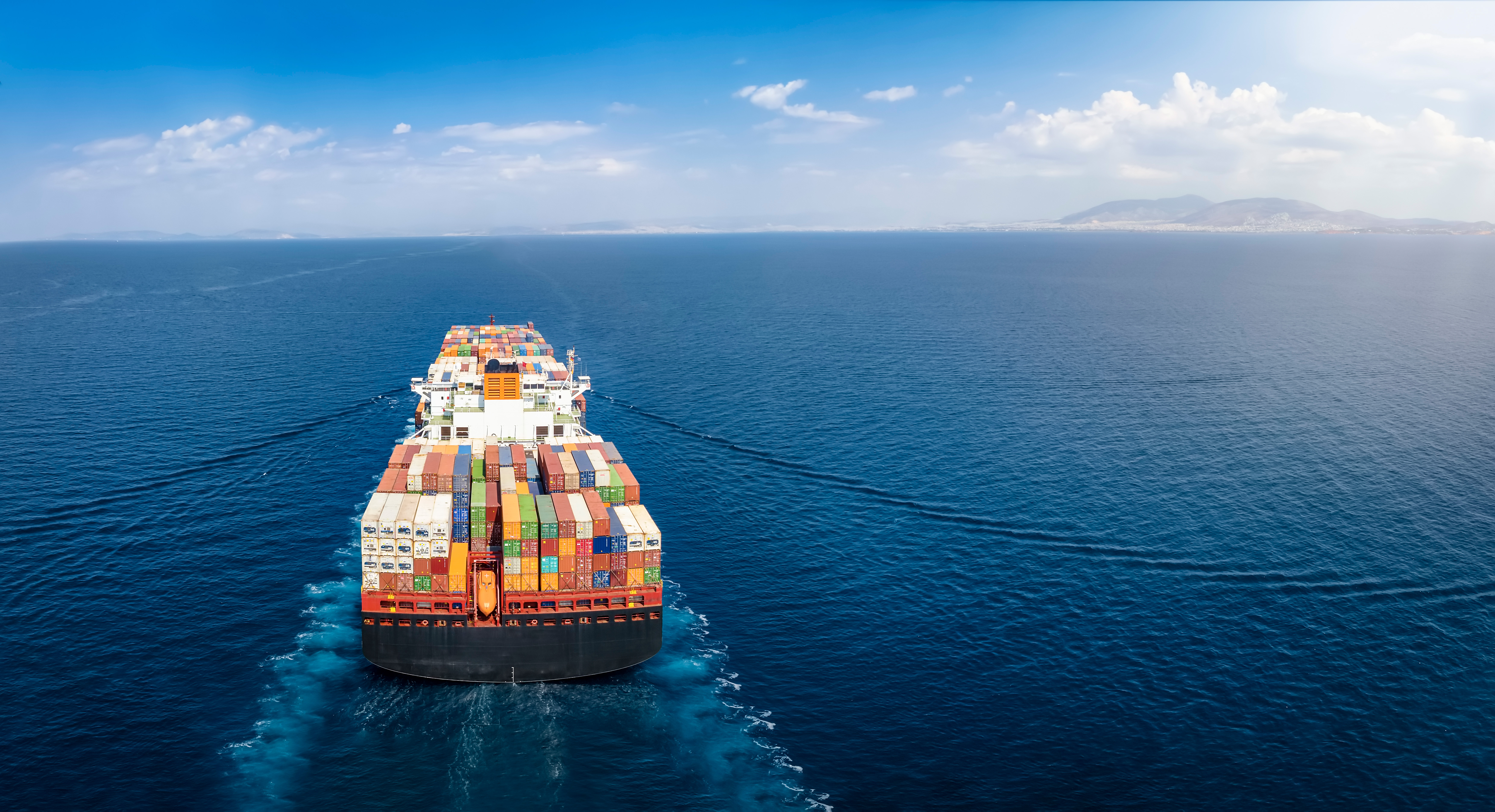Building an effective marine lubricants strategy requires the balancing of compatibility, quality, compliance, and cost. In days gone by, lubricants may have been considered a consumable, akin to shipping engine spares or even rolls of paper towels. But today, lubricants are becoming a critical factor in a vessel’s reliability, efficiency, and, increasingly, its compliance profile.
World Fuel’s approach reflects this reality. Beyond price, selecting a lubricant is often about verifying compatibility with OEM requirements, understanding the interplay between viscosity and shaft alignment tolerances, or anticipating how operational profiles like slow steaming, frequent maneuvering, or extended port stays can accelerate degradation.
In a market crowded with claims of “universal performance,” the ability to provide independent, technically grounded guidance has become a strategic advantage.
Independent technical guidance you can trust
Procurement teams and superintendents often describe needing to balance cost versus compliance, availability versus OEM approval lists, and sustainability versus proven performance in lubricant selection. World Fuel operates as an independent distributor, deliberately positioned outside proprietary manufacturing. This neutrality allows its technical specialists to compare specifications across brands and chemistries, without being compelled to promote one formulation over another. Whether a customer is considering ester-based EALs (discussed further below), polyalphaolefin (PAO) synthetics, or conventional mineral oils paired with air-type seals, the objective is the same: optimize performance and control risk.
Manuel Viñas Gómez, lubricants technical manager at World Fuel, leads a team that works with customers to analyze requirements in detail. That includes not only baseline viscosity and film strength, but also the pressure-viscosity coefficient (critical for boundary lubrication in heavily loaded bearings), and potential chemical interactions with seal materials or legacy residues.
The result is a customer service model that helps shipowners move beyond generic recommendations and toward lubricant programs calibrated for real-world conditions. As Viñas Gómez remarks: “Our approach is built on the idea that lubricants shouldn’t be treated as a commodity. We start by understanding each customer’s operating profile in detail, whether that’s frequent maneuvering, slow steaming, or extended port stays. From there, we recommend a strategy that balances regulatory requirements, performance targets, and supply reliability. It’s about making lubrication a managed asset, not just another procurement line.”
A process that goes beyond delivery
Too often, lubricant procurement is treated as transactional. But, with machinery operating under variable loads, elevated temperatures, and exposure to seawater ingress, the consequences of suboptimal selection or insufficient monitoring are measurable, including accelerated wear, unplanned downtime, higher total acid numbers (TAN), and shortened drain intervals.
With this in mind, World Fuel has built its technical program around a five-stage process:
- Operational analysis: Specialists conduct a detailed assessment of vessel equipment, historical consumption, contamination patterns, and any recurring anomalies in oil analysis data.
- Benchmark objectives: Together with the operator, the team defines KPIs, including reducing wear particle counts, extending oil change intervals, and lowering procurement complexity, against which success will be measured.
- Ongoing communication: After the initial supply, the relationship doesn’t go quiet. World Fuel maintains regular reviews to track performance trends, validate laboratory results, and adapt recommendations if new regulatory guidance emerges.
- Oil analysis and sampling: Systematic sampling schedules are established, often quarterly or aligned to key maintenance milestones, to monitor viscosity, TAN, water content, and additive depletion.
- Continuous improvement: Data trends inform iterative improvements, whether switching to higher viscosity grades to improve film thickness or implementing filtration upgrades to control contamination.
For operators used to basic supply relationships, this level of engagement might be unfamiliar. But it’s a model designed to match the complexity of modern shipping, and to anticipate problems before they escalate into operational incidents.
Supplying lubricants wherever ships trade
Supply reliability remains a defining concern, particularly for owners with changeable trade patterns. A lubricant’s performance characteristics mean little if the product isn’t available in the right port, in the correct packaging, with documented batch traceability.
World Fuel’s global reach links directly to our broad marine fuels offering. For many customers, consolidating lubricants and bunkering through a single relationship reduces administrative burden and simplifies compliance reporting. It also enables more cohesive management of inventory levels, delivery windows, and documentation.
Sustainability and bio-based lubricants
Sustainability-linked compliance demands measures that extend well beyond a fuel strategy. Bio-based and biodegradable lubricants now command a growing share of demand, driven by regulation and stakeholder expectations.
Over the past decade, environmental regulations have tightened considerably. The United States Environmental Protection Agency’s Vessel General Permit (VGP) has compelled many to transition from conventional mineral oils to ‘Environmentally Acceptable Lubricants’ (EALs) in oil-to-sea interfaces.
But despite advances in formulation chemistry, EALs can still pose other operational challenges. The lubricant in a stern tube or reduction gear, for example, often has as much impact on uptime and lifecycle costs. It determines bearing load-carrying capacity, bearing film stability, and wear rates — all variables that directly affect machinery availability and dry-docking schedules.
As Tim Biswell of Wärtsilä Shaft Line Solutions, speaking at a recent marine lubricants webinar, noted, EALs often differ from mineral oils in both viscosity index and pressure-viscosity coefficient, which are both variables that can lead to early bearing distress under high deflection loads.
Operators dealing with these issues spend time and money weighing the trade-offs: higher procurement costs, more frequent oil sampling, potential seal material compatibility concerns, etc. World Fuel’s role is to make these calculations transparent, helping customers select options that satisfy compliance while protecting equipment longevity.
Over time, as digital monitoring technologies mature, lubricant condition monitoring is likely to become a standard expectation rather than an enhancement. From real-time viscosity sensors to cloud-based reporting, these tools will help fleets manage risk and validate performance in ways that simply weren’t feasible a decade ago.
The value of a technical strategy
At its core, World Fuel’s lubricants offering is built on the belief that marine operations deserve more than a commodity supply chain. They require technical support that blends procurement efficiency with engineering insight.
That’s why the company invests in a combination of global logistics, OEM relationships, and technical expertise. The aim is to deliver products on time, but also give customers the confidence that their lubrication strategy is robust, compliant, and tailored to their specific operating profile.
Suppose your fleet is considering a move to bio-based formulations, facing challenges with EAL performance, or simply seeking to bring more discipline to oil analysis and maintenance intervals. In that case, World Fuel can help you develop a lubricant program that aligns with both regulatory obligations and operational realities.
Ready to learn more?
To explore how a tailored lubricant strategy can strengthen your fleet’s performance, contact the World Fuel team. Because in an industry where every percentage point of efficiency matters, lubrication deserves more than a passing thought.





